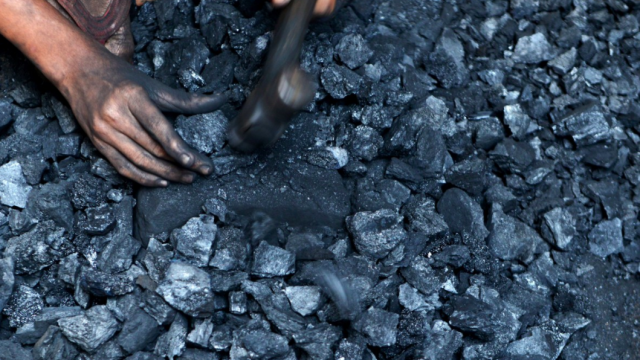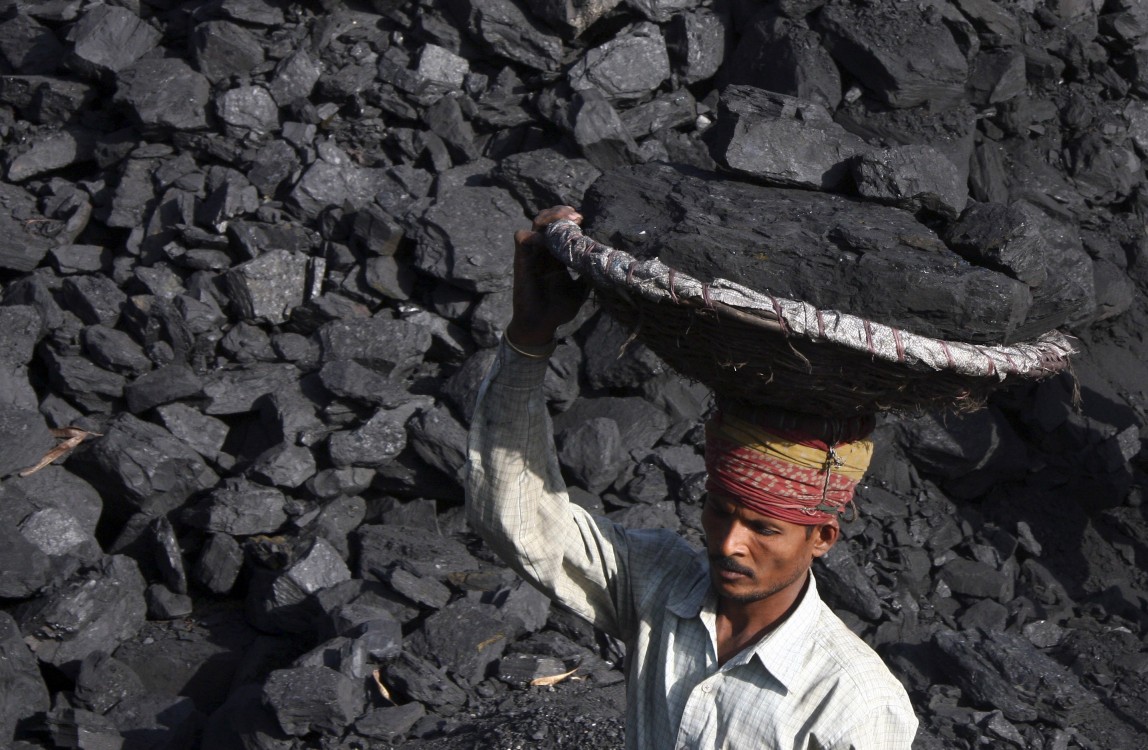
“India's economy grows at 7% annually," Sir Nicholas Stern said at the Sustainable Innovation Forum, held during the recent UN climate summit in Bonn. "In two decades its economy will be the size of China. If its emissions rise from two tons per person per year to Chinese levels, then staying below 3 degrees [of global warming] will be impossible.”
Stern's warning is stark, as global warming above 3 degrees spells catastrophe. Stern led the groundbreaking Stern Review that explained, in 2006, how unabated climate change could decimate the world economic system. A decade on, Stern says the review he produced for the UK government underestimated climate change threats.
The upside is green technology, which has advanced dramatically not least due to the continually falling price of solar panels. But Stern says Chinese moves to reduce emissions mean that country will hit peak emissions between 2020 and 2022 – 10 years before previous expectations.
Similar in terms of population, India currently emits around 25 percent of China's carbon emissions. Phasing out coal for renewables needs to happen in India, and globally: specifically, nearly 90 percent of the world's coal must remain unburned to avoid severe climatic consequences.
India's Prime Minister Narendra Modi came into office keen to burn more coal. But things are changing.
“25,000MW of coal plants have shut down. Another 52,000MW of proposed coal power plants are deferred or cancelled, and it is down to political resistance,” said Soumya Dutt, who convenes the Indian scientific organization Bharat Jan Vigyan and organizes the climate campaign Beyond Copenhagen.
India's Fight Against Coal
In India, the fight against coal is a life or death matter. Like in many parts of the global South, extractive energy industries are under increased fire and stand accused, among other things, of murdering protesters. Indian farmers, fishermen and indigenous communities are resisting their lands being taken forcibly from them, while protecting their livelihoods against local pollution impacts.
Tactics in India have included mass protests, road blockades, hunger strikes and even self-immolation. Protesters in many cases face tear gas in response, and sometimes live ammunition, resulting in more deaths. But despite the violence, resistance continues, and meanwhile the economy moves steadily away from coal.
“A few years earlier I felt like a lonely voice against coal. But last year the Ministry of Energy came up with a report that by 2026, we won't need any more coal power plants,” said Dutt. The main reason, of course, is that coal is simply losing on cost to renewables and gas. “The first ultra mega power plant, Tata Mundra, which we have been fighting for six years, offered their liquidity for 1 Rupee (under $0.02).”
The price reflects the project's risks, and higher tariffs on Indonesian coal would make the plant uneconomic.
Climate Fears from the Mangrove Delta
The Sundarbans, the world's largest mangrove forest and delta straddling Bangladesh and India, pays one of the highest prices for climate change. A UNESCO World Heritage site, it is home to endangered Bengal tigers, river dolphins and Olive Ridley turtles. Over 4 million people live in the delta, relying largely on fishing. It forms a natural barrier against severe weather from the Indian Ocean for the vast, low-lying Ganges plain stretching towards the Himalayas.
But rising seas are washing the mangroves away. Bangladesh is one of the most vulnerable nations to climate change, as an estimated 1.5 million climate refugees have already fled the coastal areas to Dhaka's slums. Yet despite all this, plans are steaming ahead for the Rampal coal power station to be built in the Sundarbans.
“We consider it a project of mass destruction,” said Professor Anu Muhammad, secretary of the National Committee to Protect Oil-Gas, Mineral Resources and Power and Ports.
Rampal could have a double-edged impact. For one, it would add to global climate change, emitting more CO2 while depleting the Sundarbans that help soak up carbon. Locally, it will further exhaust freshwater and drive industrialization. It will also cause pollution threatening local livelihoods and precious ecosystems. On top of this, there is an increased risk of spillages and accidents, which have blighted the area in recent years.
Rampal receives funding from India, but its construction will be managed by German company Fichtner. It is backed by banks and large insurers including JP Morgan Chase, HSBC and Prudential.
Due to its heavy environmental impact, Muhammad said the project would not be allowed in India. But in a bid to enable the country to outsource its pollution, UNESCO recently moved to give Rampal permission, U-turning on its initial reservations reportedly due to pressure it received from Finland and Turkey.
The ongoing seven-year struggle against Rampal mirrors other community-led efforts across India. Here, as elsewhere, police have killed protesters. Muhammad has called for international solidarity. "Since many international agencies and corporations are pushing coal in Bangladesh, we need an international mobilization to take Bangladesh into renewables,” he said.
Muhammad and other environmentalists have published plans detailing how Bangladesh can move far faster into renewables. The same is true globally. Off-grid renewables are often the most cost-effective way to bring electricity to communities without power – something needed in Bangladesh, India and beyond.
Seeking Leaders to Abandon Coal
Despite its developed renewables sector, Germany is another coal-heavy country that is continuing to debate its business of lignite, the world's dirtiest coal. One obstacle to the phase-out is people's identity, which has long been connected to coal.
“Coal is a tradition; fathers, grandfathers and everyone were miners 50 years ago. The region identifies as a coal region,” explained Bärbel Höhn, a former Green Party representative in German Parliament and the State Minister of Agriculture of North Rhine-Westphalia.
One way to overcome the historical tie to coal is to demonstrate how few jobs there are today in the industry, and to show renewables' potential, including through community ownership, Höhn suggested. The same argument could be used in the U.S., where wind and solar provide three times more jobs than coal.
Dutt highlighted another shift societies need to make in order to keep coal and other dirty energy in the ground: reducing consumption.
"I live in Delhi, and temperature ranges from summer at 46 degrees Celsius often dropping to 2 degrees in winter. These seasonal extremes only have a small moderate period in between," said Dutt. "But if Delhi, a city with its high consumption, can live with average consumption of 2000Kw per person per year, why cannot Germany not come down from 8,000? Why can the U.S. not drop from 12,000. I often ask what do they do with all that energy?”
A tool to help corporations, investors and individuals move their money out of coal, called Coal Exit, was launched in November.
3 WAYS TO SHOW YOUR SUPPORT
- Log in to post comments













